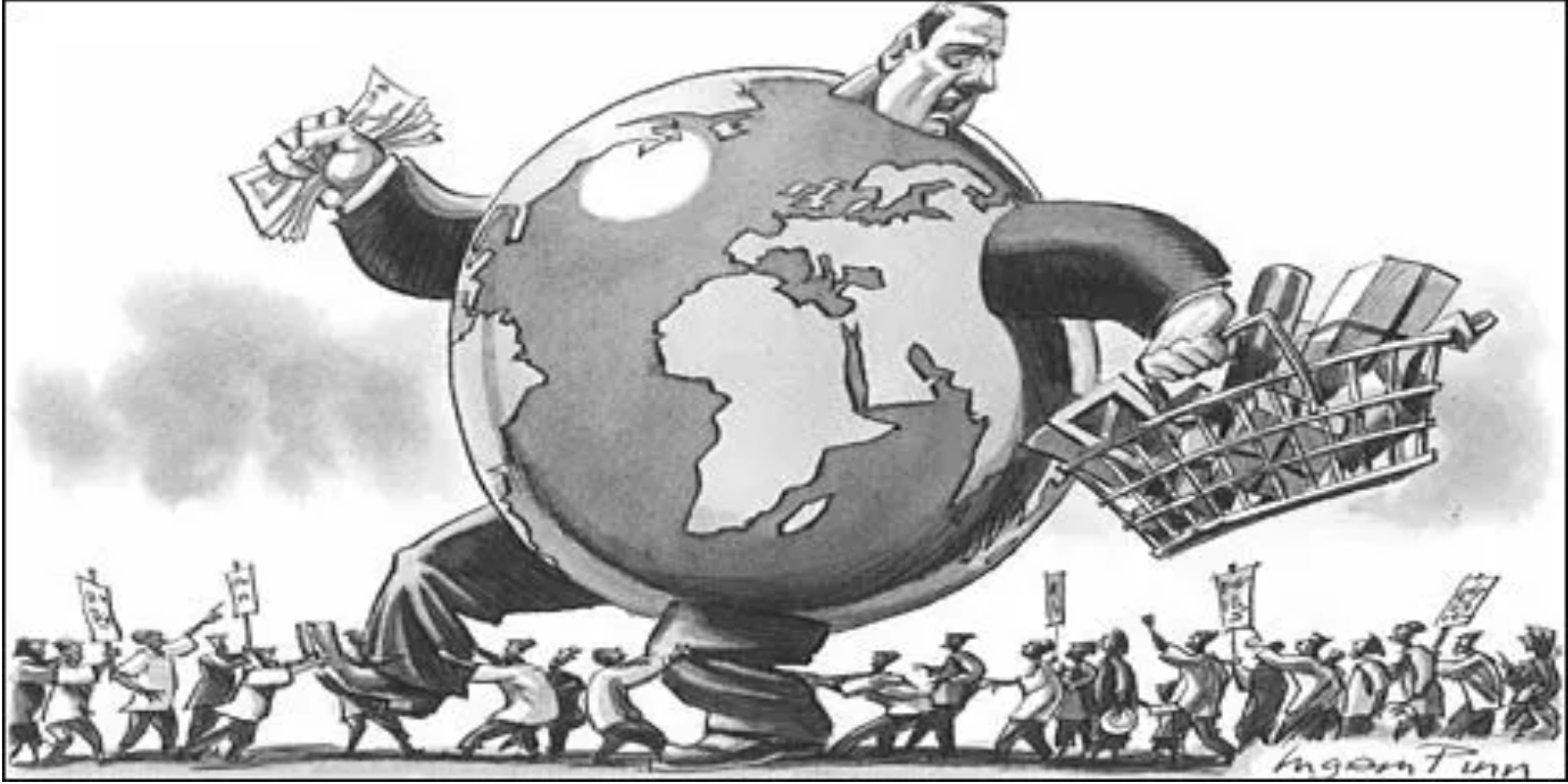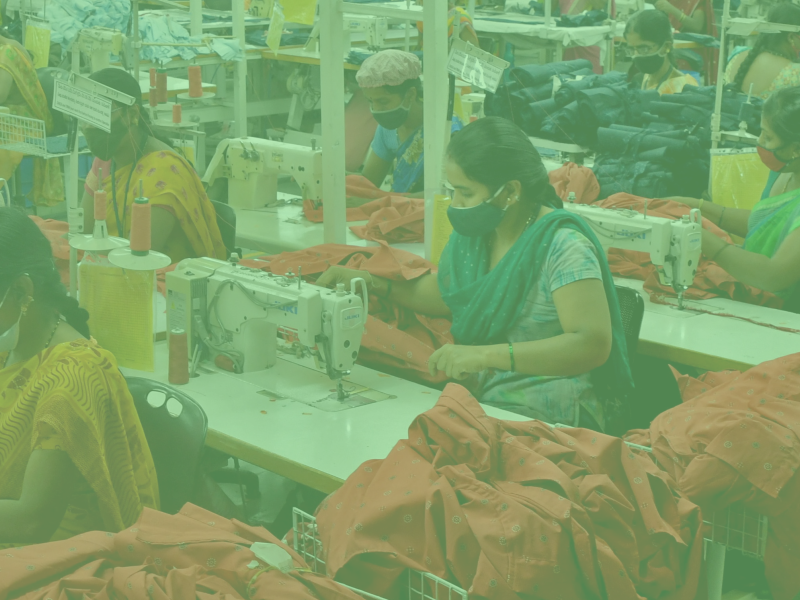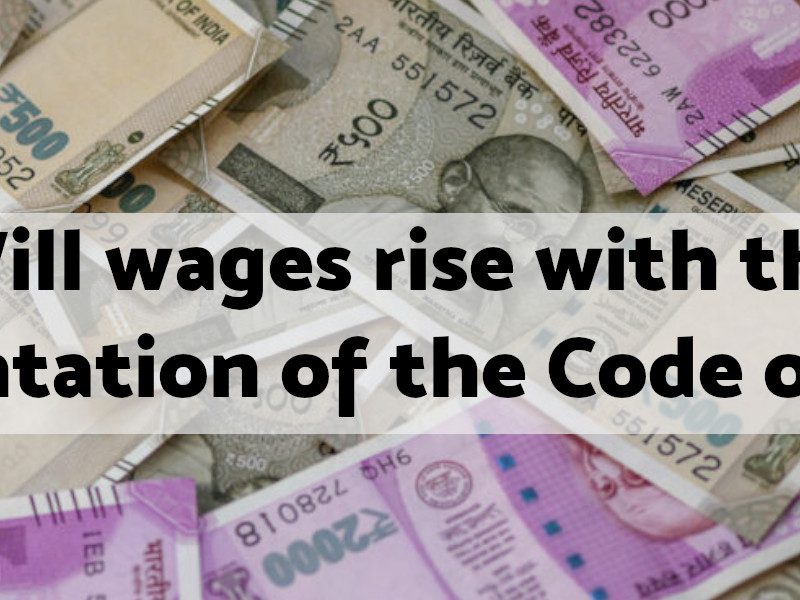Due Diligence laws to legitimise Globalisation
On 10 March 2021, the European Parliament voted for the adoption of a binding European Union (EU) law that requires companies to conduct environmental and human rights due diligence along their entire value chain. Violation of this will invite fines, sanctions and/or civil liability. This law will cover:
• large undertakings governed by the law of an EU member state or established in the territory of the EU, regardless of sector of activity and public ownership or control;
• publicly listed and high-risk small and medium-sized undertakings, with some exceptions;
• undertakings which are established outside the EU but are active in the EU market, regardless of size, operating in high-risk sectors.
In February, after months of discussion and public debate, the German government announced the draft of a new ‘duty of care for human rights’ law that will, in the first round when the law comes in effect in 2023 cover the country’s 600 largest companies and then be extended to all companies with more than 1000 employees from 2024.
In 2017, France became the first country to adopt a law on ‘duty of care’ or due diligence. For the first time, this law establishes a criminal liability between a multinational corporation and its subsidiaries and subcontractors in the event of human or environmental rights violations. The French law covers companies with 5,000 employees in big cities of France or 10,000 worldwide, including in the company’s subsidiaries. The companies covered are required to publish an annual due diligence plan setting out a range of preventive measures, which is to be made public. The due diligence plans must include a risk map, covering any hazards involved in the company’s activities, procedures for assessing subcontractors and measures to mitigate the risks. The law also requires companies to put in place an alert mechanism that enable employees, civil society organisations, affected people to inform the companies of any unidentified risks or adverse effects that may arise from their activities. Companies, however, have been using the varying threshold limits for applicability of the law to circumvent it. Without an official list of covered companies, there is lax implementation. The law till now has been implemented by most companies as merely a reporting framework. The environmental and human rights violation case against French oil major Total [in the box] in Uganda has shown the many gaps in the law in holding corporations criminally liable.

In 2019, six civil society organisations filed a case against French oil major, Total, for failing to comply with the duty of vigilance law in their mining project in Uganda. Total denied the charges.
Total, is the main operator of a mega oil drilling project in Lake Albert and Murchison Falls, a protected natural park in Uganda. Total planned to drill over 400 wells, extracting around 200,000 barrels of oil per day. The start of the project displaced thousands of people, and Total failed to properly compensate local property owners. This plan further threatens local biodiversity in the protected park and impacts communities and nature in Uganda and Tanzania. The vigilance plan published by Total did not include the Ugandan project and therefore violated the French law.
24 June 2019: The complainants filed a legal notification against Total demanding revision of its vigilance plan and the implementation of that plan for the oil project in Uganda. Total rejected the charges after the 3 month legal deadline, which allowed the complainants to take Total to court.
23 October 2019: The complainants filed a lawsuit in Nanterre, France requesting the court to direct Total to conform to the duty of vigilance law.
30 January 2020: The court in Nanterre declared itself incompetent to rule on the case involving Total’s activities in Uganda and referred the matter to a commercial court. A commercial court is composed of non-career unpaid judges, who are traders elected by their peers, authorised to handle disputes between traders, among other things. These courts are regularly criticised for their potential conflicts of interest.
March 2020: The complainants appealed to the Versailles court of appeal against the decision of the Nanterre court.
10 December 2020: The Versailles court of appeal ordered in favour of Total and once again referred the case to a commercial court. The court did not rule on the merits of the case.
11 February 2021: The Nanterre civil court dismissed the jurisdictional objection raised by Total in the fresh appeal and confirmed the jurisdiction of the civil court in the Duty of Vigilance law. Total has announced to the press that they will appeal this order.
Are these laws an improvement over the voluntary Codes of Conduct?
Of course. These are legally binding laws that cover activities of the companies in the country of origin and along its entire supply chain through a set of homogenous parameters that do not change from company to company. Which means the French law applies equally for companies such as Renault and Decathlon, both French companies but in different sectors, producing and selling different products, with their supply chains organised very differently, their profit margins very different, their employee strength very different. The law holds all companies that are covered by it as criminally liable for violations along its entire supply chain.
The story till here is perfect. Now let us look at these laws in more detail.
First, how will this law work? The French law, the EU law, the newly drafted German law, all rely on the companies themselves to conduct environmental and human rights due diligence along their entire value chain. This implies that the due diligence laws inherently rely on the very companies that intrinsically violate laws to make more profits, to self-monitor themselves. The law puts in place no legal authority that can conduct inspections, monitor and then impose penalties on the companies if they find violations along the supply chain. So the process is thus: (i) Companies are required to publish their due diligence reports, which they will (hopefully); (ii) these reports will be prepared through an ‘audit’ process of the companies, which, in turn, is geared to provide a clean slate to the company that pays them; (iii) these reports will be made public so people across the world can access and challenge it, if possible; (iv) if challenged, the legal process will kick in. So all will be well till a complaint is made, as was in the case of Total in France. So despite the new law, companies can go about their business as long as they can somehow ensure that they are not dragged to court.
Second, what can the law do in case of a violation? The laws require companies to have a plan for mitigation of violations along their supply chain. So, if a company is found to be hiring child labour or engaging in forced labour or is responsible for an environmental disaster, or human rights violation, the company may not be convicted and subjected to a punitive action, if it can ‘prove’ that it had a prior plan to prevent such a ‘risk’. This is a clever loophole that corporate lobbies were able to achieve in the law.
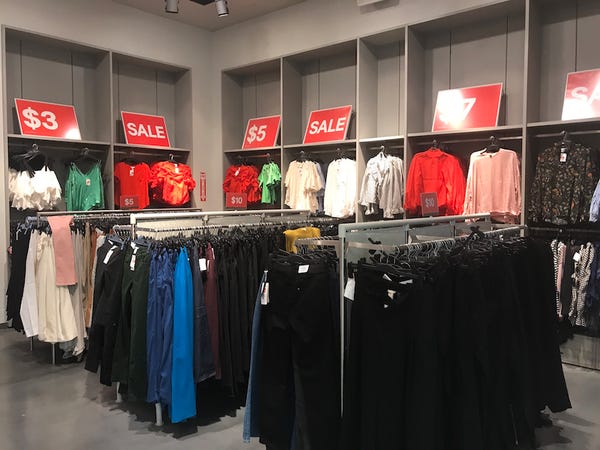
Third, it is pertinent to ask why these governments with a conscience allow such a loophole? What is evident from the recent years is that global companies can no longer be allowed to operate in the way they had been in the last three decades. There have been protests, struggles, campaigns both in the production countries as well as in the consumer countries. The new paradigm is to promote ethical products – products that do not violate human rights, respect environmental regulations, do not harm animals, do not pollute etc etc. Consumers now want to buy a T-shirt or a mobile phone or a makeup set for $3, or its equivalent in any currency, that respects labour rights! Is that possible? Obviously not. Then how will these products sell? That’s where the due diligence law comes in. It, however, did not come in in the first place. It became imperative when people are no longer willing to believe that voluntary codes of conduct of global companies is enough to ensure human rights and environmental protection. Rana Plaza in Bangladesh was the break point for this. The French law is in fact called the Rana Plaza law.
The due diligence laws are thus created to ensure companies can produce how they wish as long as they are willing to come under a common framework of duties that they must adhere to. Violation of these duties only comes under scrutiny once there is a complaint: no complaint, no problem.
The entire framework of these due diligence laws bypasses the governments of the countries in the global south. The legal system of the countries of the north become the deliverer of justice for the entire world. In 2011, a subsidiary of the US energy giant, Chevron was fined US$9.5 billion by an Ecuadorian court for environmental damage caused by its activities in the region. Chevron refused to accept the ruling. The US government remained silent on the issue.
If multinationals have to be regulated, there needs to be coordination between legal systems in the production countries in the global south and the home countries to the MNCs in the global north. Once convicted in a court of law in a country of the global south, a MNC needs to be held accountable by the government of the home country to respect a court ruling. The solution cannot be one in which the justice system of one sovereign country has more power than another. If countries of the global north genuinely seek to regulate exploitative practices of companies, they need to put in a legal framework that will complements the judicial system of the production countries where the violations occur. 30 years after the world’s worst industrial disaster – Bhopal Gas Tragedy – India has failed to extradite and try Warren Anderson, former Chairman of Union Carbide Corporation USA, the prime accused in the case, till his death. This was only possible as the US government declined to extradite him citing a ‘lack of evidence’ despite courts in both the countries holding him accountable.
If the real intention of governments is protect people and the planet we live in, it cannot be left to companies to voluntarily change their practices, or their very nature, or for affected people to file complaints in a northern country and wait for judicial remedy. In democracies, governments are elected by the people to protect and advance their interests and to do so must be a sovereign function of the state. There has to be government regulatory institutions that can take cognisance of corporate offences on its own and have the power to take punitive action against them, wherever the violation takes place. This action then needs to be supported and complemented by the government of the parent country of the company. The onus of proving the violation must rest with the government and not with people who can be victimised and silenced.
Fourth and finally, the ultimate penalty against a company that violates a due diligence law is the imposition of a trade sanction. What that entails is: (i) a one time loss for the company which is not able to access its market in the global north for a specific order, but (ii) an isolation and victimisation of producer country not just by the company that is charged but also by others in fear of being charged. This would have a cumulative and spiralling effect on the already unstable dependent economies of the global south much more drastically than it would affect the company facing the one time punitive action. This has far-reaching effect on the society as a whole as governments in these countries will then put in place repressive mechanisms to prevent its citizen’s assertion of their rights from pursuing complaints against global corporations. There will be increased repression of dissent. This is all to ensure unrestrained access to global companies. A due diligence law that is rooted in complaints being filed against global corporations is faulty at its core given the inherent and increasing inequality between countries in the global north and those in the south.
Why do we need a Due Diligence law?
If we are to only concentrate on violations of labour rights, there are 190 ILO conventions that every member country can be made to follow. These require ratifying member countries to develop legal structures that will ensure that the elements of the conventions are adhered to. But in the globalised world, none of these mean anything anymore. India has ratified the convention on labour inspection and yet in the new labour codes, has effectively done away with the institution of the labour inspectorate. It remains today only in name and its purpose changed to facilitate violations by employers. In the Multilateral framework of the ILO, all member states were equal and all member states could regulate companies operating within their national boundaries equally. In the last three decades, the US and the EU have emerged as more equal than all countries and they decided, for the world, to move brazenly towards institutionalising the existing imbalance between countries.
Countries of the global south no longer negotiate for removal of social clause in trade agreements within the WTO but are pulled into accepting various non-tariff barriers (social clause) in the free trade agreements that are being negotiated between the powerful global north countries or blocks of countries and the much weaker countries of the global south. The argument against the imposition of non-tariff barriers in trade agreements still remains – economies of the global south are weak, including because of the consequences of colonialism, trade sanctions will further weaken them and their negotiation power vis-à-vis their stronger trade partner, and push the weaker economy towards a downward spiral – but in a world of institutionalised inequality, the countries of the global north have the extreme power to hold out or even withdraw. That is what Free Trade Agreements are all about. What these non-tariff barriers ensure is the intensification of an already unequal relation, where the dependent economy lives in constant fear of reprisal on the violation of the due diligence clauses.
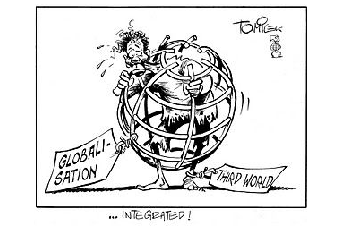
Due diligence laws are like a spoonful of sugar that is meant to help globalisation (the medicine for all ailments in this world) go down the throats of all, even if not in the most delightful way. These are laws that act as a safety valve to contain opposition to ills of globalisation within the countries of the global north and beyond. It is to create an image of a ‘benevolent exploiter’ – an exploiter with a bleeding heart that is crying for the poor people in the global south, for their starving children, for their oppressed women, for their rivers and mountains, for their animals and plants … This imagery is no different from the imagery that a company creates of its benevolence through their Corporate Social Responsibility agenda. The reason behind the two is the same – creation of a corporate image that legitimises a greater access to new markets and new regions to exploit.

